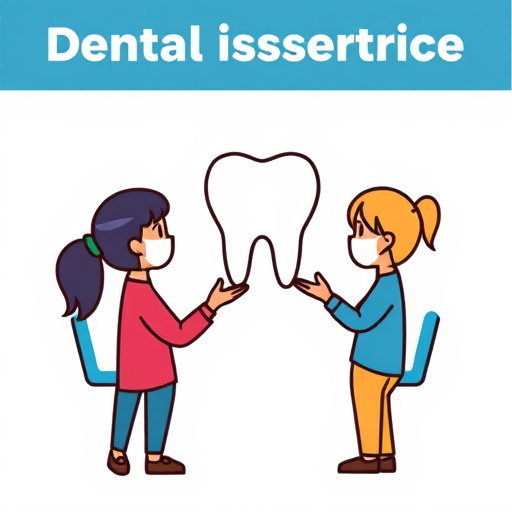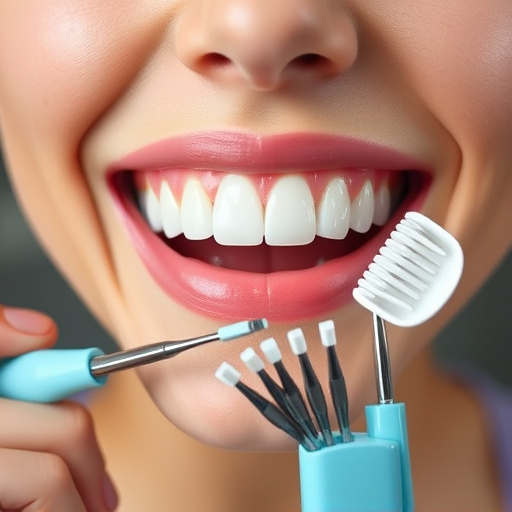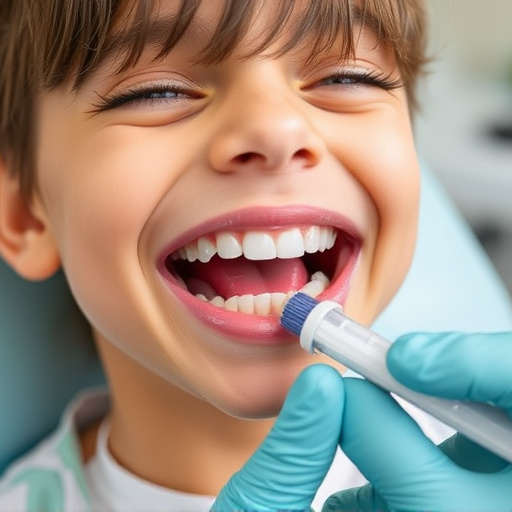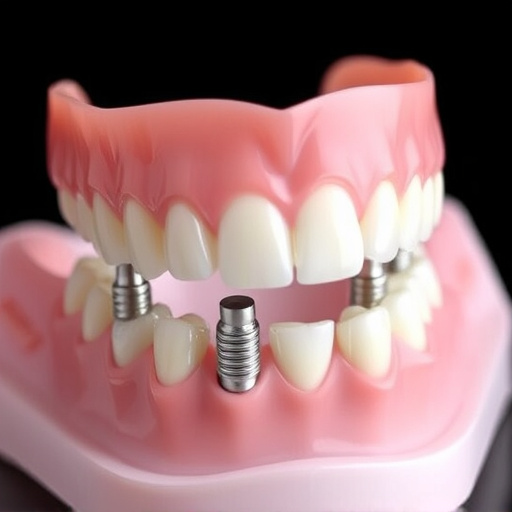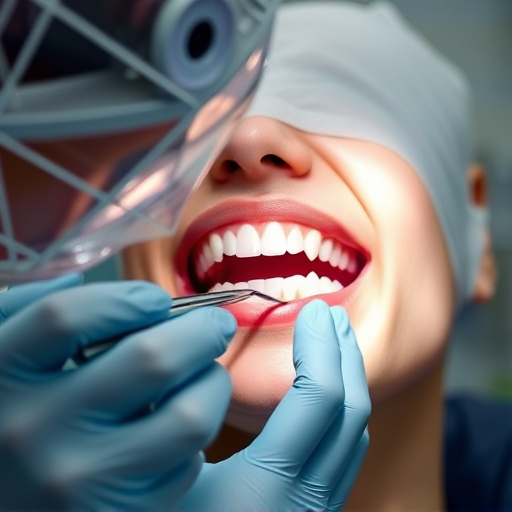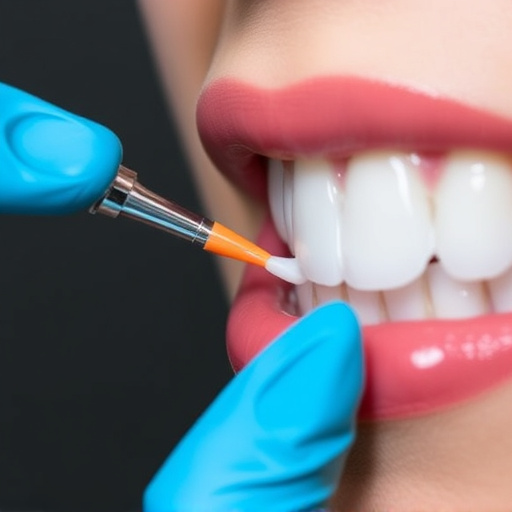Dental anxiety, caused by trauma, nature, or specific events, negatively impacts mental health and oral hygiene, leading to systemic inflammation. Cognitive Behavioral Therapy (CBT) effectively challenges negative thoughts, teaches relaxation techniques, and facilitates gradual exposure to dental scenarios, reducing dental fear. Relaxation methods like deep breathing, progressive muscle relaxation, and mindfulness meditation also aid in managing stress during dental procedures, enhancing comfort and fostering a positive relationship with dental care.
Dental anxiety is a common struggle that goes beyond mere discomfort. It significantly impacts mental wellness, causing stress, avoidance of dental care, and even exacerbating existing psychiatric conditions. This article explores evidence-based strategies for dental anxiety treatment, focusing on Cognitive Behavioral Therapy (CBT) and relaxation techniques. We delve into how these approaches not only help patients overcome fear but also foster mental well-being through improved coping mechanisms and increased access to essential dental care.
- Understanding Dental Anxiety: Causes and Impact on Mental Health
- Cognitive Behavioral Therapy: A Leading Approach for Overcoming Fear
- Integrating Relaxation Techniques and Mindfulness for Dental Procedures
Understanding Dental Anxiety: Causes and Impact on Mental Health
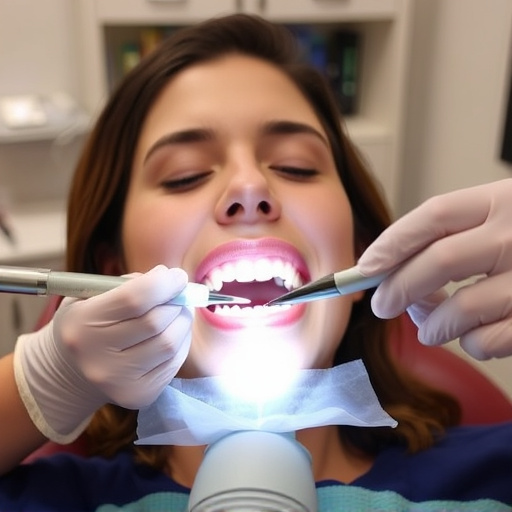
Dental anxiety is a common condition that goes beyond mere discomfort during dental procedures. It’s characterized by feelings of fear, worry, or even panic related to visiting the dentist. Understanding its causes is crucial in addressing this issue effectively and supporting mental wellness. Many individuals experience dental anxiety due to past traumatic experiences, such as painful or uncomfortable procedures, or from watching others have negative dental encounters. Some people are naturally anxious by nature, while others may develop dental phobias after having a particularly distressing event like a wisdom tooth removal or a severe tooth infection requiring repair.
The impact of dental anxiety on mental health is significant. Prolonged anxiety can lead to avoidance behaviors, causing individuals to delay or avoid necessary dental care, resulting in more complex and painful issues down the line. This could exacerbate existing mental health conditions such as depression or anxiety disorders. For example, regular teeth cleaning appointments become stressful events that someone with dental anxiety might try to evade, ultimately leading to poor oral hygiene and potential systemic inflammation, which can further contribute to overall mental and physical health decline.
Cognitive Behavioral Therapy: A Leading Approach for Overcoming Fear

Cognitive Behavioral Therapy (CBT) is a highly effective approach to treating dental anxiety, focusing on challenging and changing negative thought patterns and behaviors. This therapy helps individuals recognize and modify distorted thinking that contributes to their fear of dental procedures. By learning to replace anxious thoughts with realistic, positive ones, patients can significantly reduce their dental anxiety symptoms. CBT also teaches relaxation techniques and gradual exposure to dental scenarios, enabling folks to face their fears in a controlled manner.
Whether it’s managing the jitters before a routine check-up, overcoming the apprehension associated with cosmetic fillings or even tackling more complex procedures like wisdom tooth removal, CBT offers valuable tools. This evidence-based method empowers individuals to take control of their mental wellness during dental treatments, fostering a sense of comfort and confidence in general dentistry.
Integrating Relaxation Techniques and Mindfulness for Dental Procedures

Many individuals experiencing dental anxiety can benefit from incorporating relaxation techniques and mindfulness practices into their dental procedures. These strategies offer a powerful way to manage stress and fear associated with visits to the dentist. By focusing on deep breathing exercises, progressive muscle relaxation, or guided imagery, patients can transport themselves to a calmer state of mind before and during treatments, including routine teeth cleaning or general dentistry appointments.
Mindfulness practices, such as meditation and mindful observation, encourage individuals to stay present in the moment, redirecting their attention away from anxious thoughts. This mental approach is especially valuable for those requiring emergency dental care, helping them to remain calm and cooperative while addressing urgent dental issues. Integrating these relaxation and mindfulness techniques into dental anxiety treatment not only enhances overall patient comfort but also fosters a more positive relationship with dental care in the long term.
Dental anxiety can significantly impact an individual’s mental wellness, but there are effective treatments available. Cognitive Behavioral Therapy (CBT) has proven to be a game-changer in overcoming dental fear by addressing negative thoughts and behaviors. Integrating relaxation techniques and mindfulness further enhances the process, making dental procedures less daunting. By combining these approaches, individuals can achieve improved mental health and better oral care, breaking free from the cycle of dental anxiety. This holistic treatment supports overall well-being, ensuring a more relaxed and positive experience in the dental chair.








